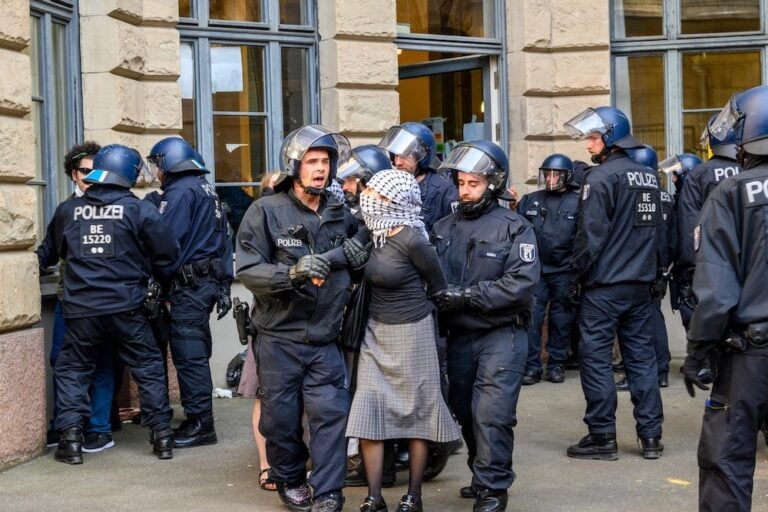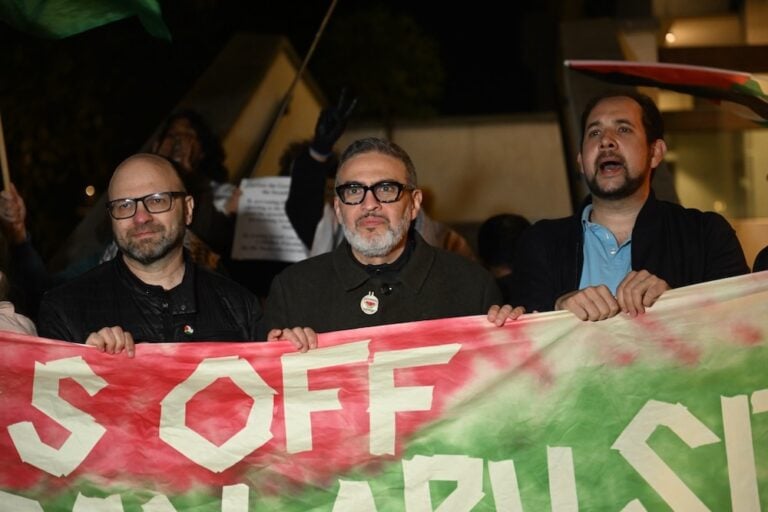(IFJ/IFEX) – The following is a 27 February 1999 press release by the European Federation of Journalists (EFJ) distributed in its entirety by IFJ: EFJ Media Release Press freedom and investigative journalism in Germany under threat warn European journalists A German Supreme Court decision last week to give prosecutors the right to raid the homes […]
(IFJ/IFEX) – The following is a 27 February 1999 press release by the
European Federation of Journalists (EFJ) distributed in its entirety by
IFJ:
EFJ Media Release
Press freedom and investigative journalism in Germany under threat warn
European journalists
A German Supreme Court decision last week to give prosecutors the right
to raid the homes and offices of freelance journalists and to seize
materials without an official warrant is dangerous and threatens press
freedom.
“Freelance journalists will live in fear of a knock on the door from the
police whenever they are engaged in investigation of corruption or
illegal activities,” said Gustl Glattfelder, chairman of Europe’s
largest journalists’ group, the European Federation of Journalists
(EFJ). The ruling means freelance reporters and their offices do not
have the same legal protection as that for established editorial
offices.
Almost half of Germany’s working journalists are involved in freelance
or short-contract work.
“Throughout Europe journalists are intimidated and pressured into giving
up material and information they get in the course of legitimate
journalistic work. We are not the police and we resent being forced to
act in any way which compromises our independence as journalists,” said
Glattfelder. “This court decision will make life even harder for
journalists and threaten our obligation to protect confidentiality of
sources.”
The Court was ruling in a case over reporting on a terrorist
organisation, but the ruling will apply in any case in the future and
will leave the decision to act against freelance journalists in the
hands of prosecutors.
“This is a dangerous precedent,” said Glattfelder, “In the past a
journalist’s film or notes could not be seized without a court order.
Now we could have unrestricted fishing into our work by the
authorities.”
The EFJ Steering Committee meeting in Brussels on 27 February demanded
that the German Minister of Justice and the German Government act
quickly to block this legal loophole. “Unless action is taken quickly,
the impression will be given that this assault on the rights of
journalists is endorsed by the government.”


